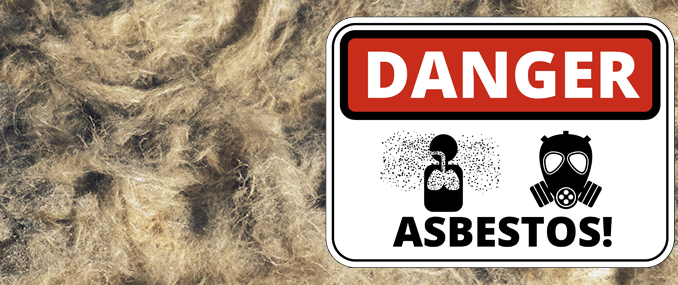
The Canadian Mesothelioma Foundation facilitates ground-breaking research with an international medical community on ground-breaking research and providing essential support for patients and families.
Asbestos-related diseases remain the number one cause of workplace mortality in Canada today. Over 1,500 people die from asbestos-related disease (520 died from mesothelioma in 2020), and more than 600 new cases are diagnosed every year in Canada, although the exact numbers vary from year to year and data from Quebec is estimated.
“There is now evidence that the mesothelioma rate—the number of new mesothelioma cases diagnosed per 100,000 people each year—has stopped increasing and may be slowly declining in some provinces, such as Ontario and British Columbia,” says Dr. Paul Demers, director of the Occupational Research Centre in Toronto, Ontario.
Canada’s History
Canada banned asbestos in 2018, which stopped almost all new use of asbestos, and regulations restricting the uses of asbestos began appearing in the 1970s. However, almost all exposure that occurs today is due to contact with older asbestos-containing products, particularly those in building materials.
“Although the levels of exposure are lower now than in the past, people continue to be exposed and CAREX Canada estimates that approximately 235,000 Canadians are exposed to asbestos at work, primarily through the renovation, repair, or maintenance of buildings,” Dr. Demers says. “Mesothelioma and other diseases caused by asbestos, such as lung cancer and asbestosis, take many years to develop after people are exposed, so we will continue to have new cases for many years to come.
“Even countries that banned asbestos many years ago, such as Sweden, Finland, and Norway, continue to feel its effects, although based on their experience we do expect the situation to continue to gradually improve in Canada.”
Medical Research
Important advancements in medical research are helping doctors develop diagnostic and screening technologies that will continue to help prolong and save lives.
Dr. Marc de Perrot is a Canadian Mesothelioma Foundation Professor in Mesothelioma Research from the University of Toronto. According to an Impact Report Dr. Perrot prepared for the Canadian Mesothelioma Foundation, researchers have been working with other international experts, including the World Health Organization (WHO), to update the standard international definitions of mesothelioma.
“These definitions are important to ensure patients are accurately diagnosed and receive optimal treatment strategies that incorporate the most up-to-date knowledge about the disease,” the report says.
Mesothelioma is typically diagnosed using biopsy, the results of which help clinicians determine the prognosis and make treatment decisions. Additionally, the diagnosis that a patient receives may impact their eligibility to participate in clinical trials.
There is also on-going, significant research on early diagnosis and screening. One project of interest is the development of a “liquid biopsy,” which is essentially a blood test for mesothelioma using knowledge of risk factors for mesothelioma to detect the earliest stages. This tool could then be used to screen individuals at high risk of developing mesothelioma, such as the family members of a person currently diagnosed with the disease.
Researchers are investigating the use of three drugs to optimize the immune response triggered by radiation by boosting the proliferation of cancer-fighting T cells. This will help consolidate the immune system’s “memory” of the cancer, so that T cells can continue to target recurrent cancer long after treatment, analogous to a vaccine. The team will be targeting key pathways in the immune system to optimize the long-term benefits of treatment, aiming to delay or prevent recurrence.
And finally, researchers are using single-cell RNA sequencing to analyze tumour samples in order to identify biomarkers that are potentially associated with patient prognosis and response to therapy.
“This research and treatment protocol is the first of its kind in the world and has the potential to have a major impact on the treatment of mesothelioma,” the report says. “Researchers are pleased to report that the trial is now underway.”
Patients and Families
The CMF was founded in 2008 by people whose lives were personally affected by mesothelioma. At that time there were no supports for patients, families, caregivers, and those affected by this disease. Dr. Goldberg and her sons founded the CMF so that others would not have to go through what she and her sons went through. Those who receive this devastating diagnosis often feel lost and have no idea where to turn. The CMF’s mission is to raise awareness of the dangers of asbestos exposure and to provide support to patients and those affected by mesothelioma.
The CMF provides:
- information on mesothelioma treatments and living with mesothelioma
- information on compensation
- information on research and treatments
- on-line private support groups where patients and families/caregivers can share experiences and support each other online
- live support groups using zoom moderated by an oncology social worker
- webinars on various mesothelioma issues
- regular conferences on the latest in mesothelioma research and treatments
- connections with centres of mesothelioma excellence in Canada
- facilitation of mesothelioma research through support of the CMF Professorship for Mesothelioma Research UHN/University of Toronto
The Future
Asbestos exposures to workers and the public will continue in Canada until all the residential, commercial, and industrial building inventory with asbestos is replaced. “We need an inventory of the location of all buildings with asbestos and to develop a plan to safely control its condition prior to removal and its proper disposal,” says Lee Loftus, retired Heat and Frost Insulators Local 118 Business Manager. “Even where this has been attempted elsewhere exposure was not completely eliminated.”
Loftus says asbestos disease will continue well beyond 2050 and will likely remain the leading cause for workplace death in Canada for some time to come.
“The nature of the exposure and the length for the lethal condition to manifest is overlooked by the public and policy makers,” Loftus says. “If there were an immediate traumatic impact from asbestos exposure, it would have been banned and removed from our communities 50 years ago.”
Learn more about the Canadian Mesothelioma Foundation | cmfonline.org ■


